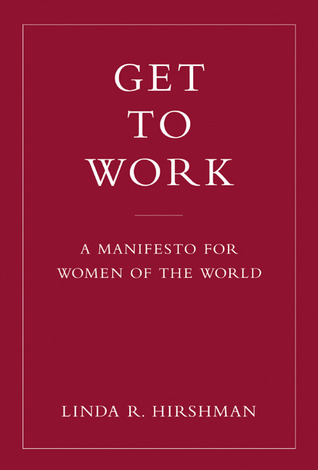What do you think?
Rate this book


Examining the trend of affluent, educated women abandoning their careers in order to raise children, Hirshman has concluded that the real glass ceiling that’s barring women from success in the workplace is in their own homes. Why, forty years after The Feminine Mystique, do men and women assign the low-level and generally unrewarding jobs of housekeeping and child rearing to women? The time is ripe for a new feminist revolution based on values and quality of life, not some false promise of “choice.” Get to Work will lead the national discussion as Hirshman lays out a strategic plan to help women rediscover that their place is not necessarily in the kitchen.
112 pages, Hardcover
First published January 1, 2006